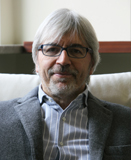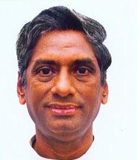- Ateneo
- Expolab
- Colloquium 2015
- Call for papers
- 4. Access to food, access to information
4. Access to food, access to information
At this stage the topic of access to food and access to information are connected by two common elements: a state of inequality amongst people and the contradiction between excesses and scarcities.
Today, with regards to the inequalities between people, just look at how both ‘food’ and ‘information’ constitutes two grounds within which the inequality is more noticeable. Consequently, these topics are two very precise indicators of the inequality itself.
This inequality - in different proportions - is evident between different areas of the world, countries and within each country. In particular, these inequalities depend on economic, social and cultural discriminants, and the overcoming of them requires appropriate policies, both from the States and from supranational bodies.
Regarding the contradiction ‘excesses’ and ‘scarcities’, both talking about food and information we can observe from a side abundance till excess and from the other indigence till poverty.
Let’s look at excess: in some parts of the world there are hyper-informed citizens, every hour and any time of day, with an overload of information that can paradoxically generate a disinterested and just falsely participated attitude; and moreover, on the food front, we have the obesity phenomena and diseases caused by overabundant feeding.
Now, let’s talk about scarcities: to the situations of hunger indigent, capable of leading death, the most vulnerable, such as children, corresponds, in terms of information, a lack of educational and informational resources. In certain areas of the world and for certain categories of people this lack, produces isolation from society (local and global) in which the people themselves are living, precluding them from participating in community life.
Therefore, the first task of the Colloquium is to detect this parallelism, showing its dimensions and consequences on the global stage.
In particular, issues that could be discussed can open up new national and international polices, such as:
- the use of network resources in order to reduce wastes and to orient the circulation of food toward the most suffering areas and subjects;
- strengthen the educational and informational resources for the countries with problems related to the shortage of food in order to promote agricultural and livestock practices (as well as raw materials processing) that can improve the food self-sufficiency of the same areas;
- the information on inequalities on access to food (essential for example to raise global public awareness);
- the information about food, its traceability. In order to strengthen the right to health;
- the problem of sensitization to food lifestyles in order to reduce the effect of diseases.
Chair: FAUSTO COLOMBO, Università Cattolica del Sacro Cuore
Rapporteur: SAVARIMUTHU IGNACIMUTHU, Loyola College, India
 Fausto Colombo
Fausto Colombo
Fausto Colombo is Head of Department of Communication and Performing Arts at the Università Cattolica del Sacro Cuore, Milan. He is member of the Executive Board of ECREA (European Communication Research and Education Association), and co-editor of the ECREA Series at Routledge. Member of the Editorial Boards of «Comunicazioni Sociali», «ComPol – Comunicazione Politica», «Communication & Langages», and «CM. Communication Management Quarterly». He is also member of the Scientific Council of the CELSA (Université Paris IV, Sorbonne), referee for national and international projects (Italian, Belgian and French Ministry of University, European Research Council). Italian exponent in three Cost Actions.
 Savarimuthu Ignacimuthu
Savarimuthu Ignacimuthu
Fr Dr S. Ignacimuthu has been working in the field of agriculture and food security for the last 30 years. He holds M.Sc., M.Phil., Ph.D. and D.Sc. degrees. He has been instrumental in promoting natural biopesticides and natural biofertilizers to promote agricultural productivity. He has developed a botanical pesticide ‘PONNEEM’ which has a patent and a trademark. He has contributed peer reviewed 500 research articles. He has trained 30,000 farmers in sustainable agriculture. He has written more than 55 books which are used in Universities and colleges. One insect species is named after him: Jacthrips ignacimuthui.
Expolab
- Il Laboratorio
- Partnership
- Alta Scuola di Economia e Relazioni Internazionali - ASERI
- Alta Scuola per l'Ambiente - ASA
- Centro di Ateneo per la dottrina sociale della Chiesa
- Centro di Ateneo per la Solidarietà Internazionale - CeSI
- Le Università per Expo 2015 - Comitato Scientifico del Comune di Milano
- Expo - Santa Sede
- Expo - Unione Europea
- FIUC - IFCU
- Congregazione per l'Educazione Cattolica
- Eventi
- Progetti
- Percorso BISOGNI, PERSONE, AMBIENTI
- Percorso SVILUPPO DI UN MODELLO DI ALTA FORMAZIONE PER ESPERTI DI ANALISI DEL RISCHIO ALIMENTARE
- Percorso SVILUPPO LOCALE, SOLIDARIETÀ E COOPERAZIONE INTERNAZIONALE: responsabilità e prospettive di lavoro per un futuro sostenibile
- Progetto SHAREXPO
- Progetto CAFFEXPO
- Progetto COCOA AND CHOCOLATE CLUSTER - EXPO 2015
- Progetto ESMERALDA EXPEDITION
- Progetto L'ALFABETO DELLE ACQUE CON GLI OCCHI DEI BAMBINI
- TRE INSTALLAZIONI IN UNIVERSITÀ CATTOLICA NEL TEMPO DI EXPO
- Formazione
- Corso di perfezionamento in sicurezza degli alimenti
- CEEP- Cremona Executive Education Program
- Summer School Expo Milan 2015
- Ciessevi - Università del volontariato
- Rapporto fra cambiamenti climatici, agricoltura e sicurezza alimentare nei paesi in via di sviluppo
- UPA - Comunicazione d'azienda nella Network Society
- Alta Scuola per l’Ambiente
- fou_main 4930
- Colloquium 2015
- Call for papers
- 1. Global food security: new solutions for a cultivated planet
- 2. Sustainable use of resources (water, land and environment)
- 3. Land rights and access to food: promoting human dignity for hunger reduction
- 4. Access to food, access to information
- Scientific committee
- How to participate
- Press review
- About us
- Contacts
- PHOTOS
- Rassegna stampa
- Notizie
